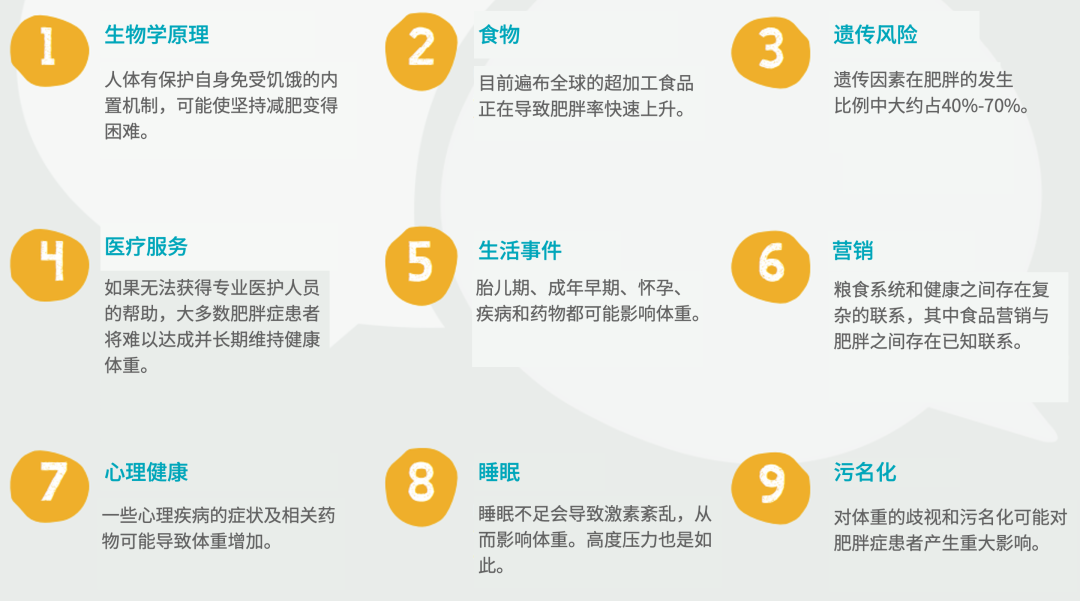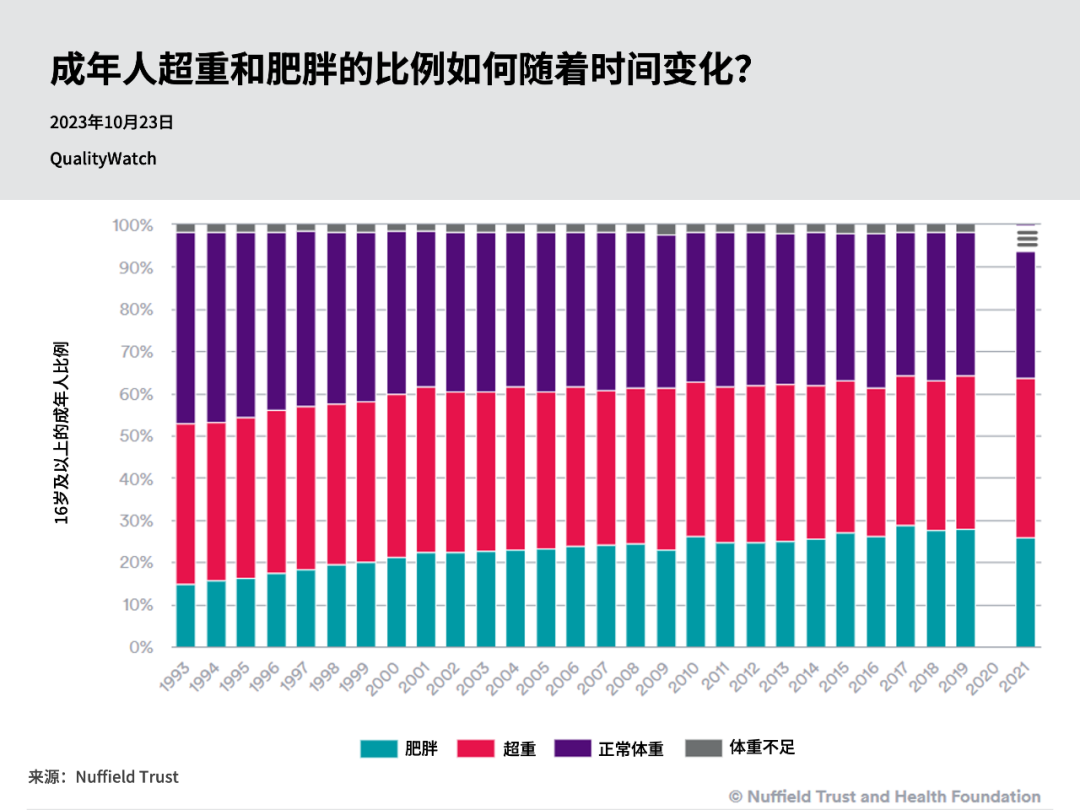:Unsplash/Nappy
Shyam Bishen
50,
:
,,20%,2-512.7%,12-1922.2%,
: NHS Digital
:
Obesity increases the risk of certain cancers, such as endometrial cancer, breast cancer, and colorectal cancer. Research by Swedish scientists indicates that childhood obesity may also raise the likelihood of developing early-onset multiple sclerosis.According to the World Health Organization, at least 2.6 million people die each year from being overweight or obese. Some studies indicate that children with severe, long-term obesity may live only about half as long as the average life expectancy.Weight can also lead to severe stigmatization, as people with obesity may face negative judgments. Unfortunately, society often unfairly links obesity to laziness, low intelligence, or poor hygiene.Fear of stigma may lead people to hesitate in seeking treatment or adopting preventive measures. Obesity is also linked to eating disorders such as binge eating, restrictive dieting, or disordered eating behaviors like food anxiety.The stigma or fear surrounding obesity can also lead to stress and depression, isolating individuals from society—and as a result, reducing their attendance in classes and making it harder to find and keep a job.During the pandemic, obesity rates among 10-11-year-old children in the UK increased significantly.
: Nuffield Trust
The causes of childhood obesity are highly complex. Therefore, simply urging people to eat less and exercise more isn't enough to tackle this issue. Families, schools, communities, and policymakers must work together and adopt multifaceted strategies to address it effectively.Cultivating a healthy lifestyle from an early age is essential, which includes improving education and expanding access to information through initiatives like school and community programs, as well as public health awareness campaigns.The World Economic Forum’s “New Frontiers in Nutrition” initiative aims to highlight the critical role nutrition plays in both physical and mental well-being. The initiative recognizes that, while many people aspire to lead healthier lives, they may struggle to achieve their goals due to barriers such as inconsistent information and limited access to nutritious foods.Globally, more than 20% of boys in 35 countries are obese.
:Global Obesity Observatory
Harmful food marketing is also a key area policymakers aim to address, including measures such as restricting food and beverage advertising targeted at children, imposing taxes on sugary drinks, mandating nutrition information on packaging, and limiting portion sizes.Research indicates that digital health interventions such as timed text messages and digital therapeutics may help with weight management and foster healthy behaviors among children and adolescents.
The above content solely represents the author's personal views.This article is translated from the World Economic Forum's Agenda blog; the Chinese version is for reference purposes only.Feel free to share this in your WeChat Moments; please leave a comment below if you'd like to republish.
Translated by: Di Chenjing | Edited by: Wang Can
The World Economic Forum is an independent and neutral platform dedicated to bringing together diverse perspectives to discuss critical global, regional, and industry-specific issues.
Follow us on Weibo, WeChat Video Accounts, Douyin, and Xiaohongshu!
"World Economic Forum"










